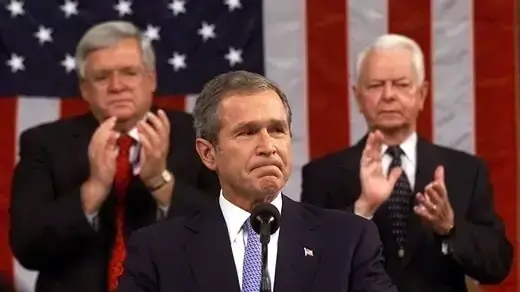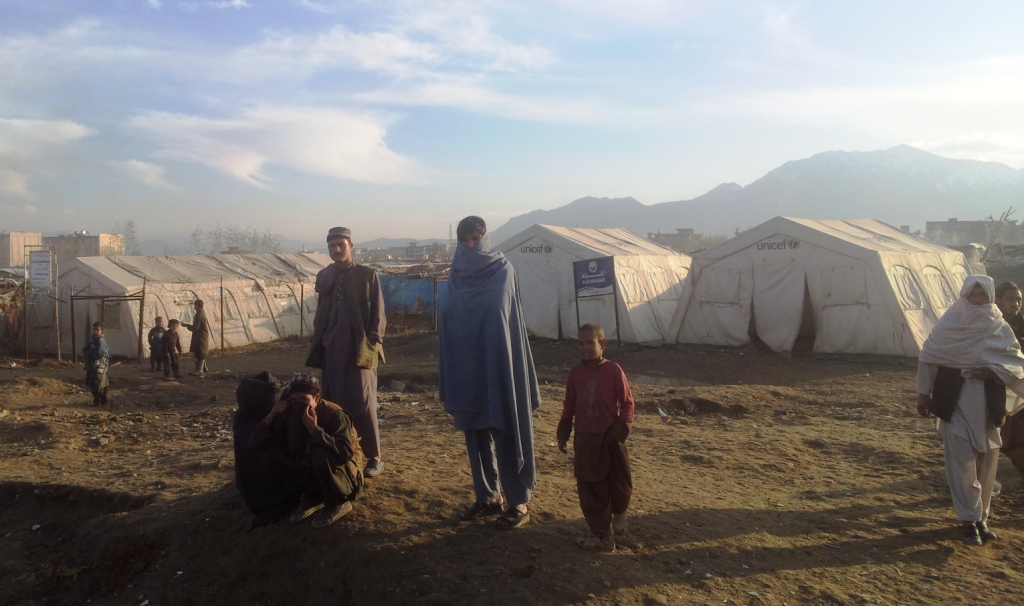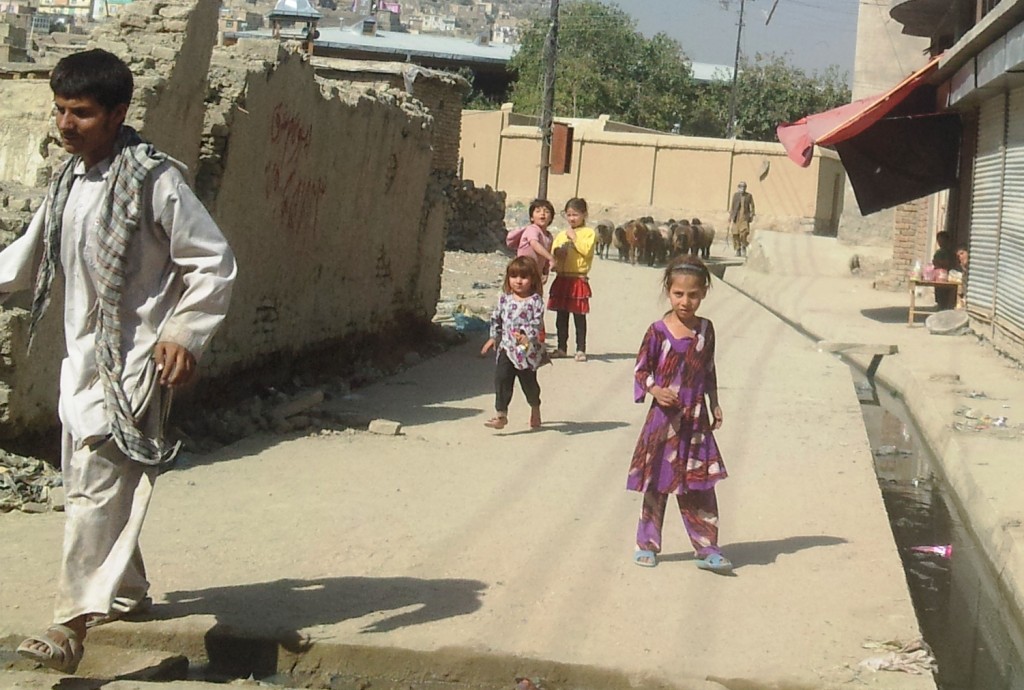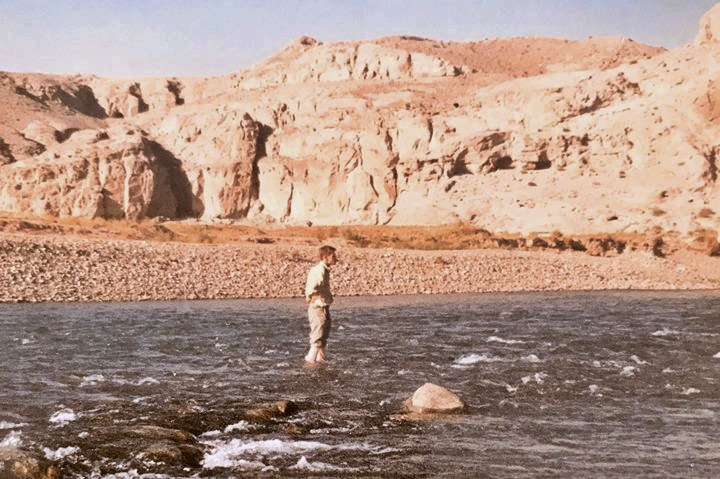In May and June 2002 I oversaw the holding of elections in Kandahar, Helmand, Zabul and Uruzgan. I was the only UN political/civil affairs officer in south-west Afghanistan and had to single-handedly support – I barely had office staff – the Afghan team in charge of organizing the elections. This meant
Continue readingCategory Archives: Afghanistan
Don’t Look Down! The Western Defeat in Afghanistan and its Consequences
The international intervention in Afghanistan since 2001 has been an outright disaster. After twenty years of chaos and warfare, the Taliban have returned to power. NATO members spared no expense: despite the most sophisticated warfare technology and special forces straight out of a Hollywood movie, they were defeated by men with Kalashnikovs on motorbikes. The US invested a trillion US dollars, and the rest of the world probably an equivalent amount, but the Afghan economy is in shambles and its population on the brink of starvation. Where did that money go? Not a single person in a prominent position in Western countries has been held accountable for what appears to be a giant scam, mostly in favour of the US Defense Industry and the private military sector.
Instead, the people and institutions involved in Afghanistan have moved on, and one barely hears about the country any longer. Whatever happens there now is considered the fault of the new government. Has anybody paused to think about this disaster, and try to draw some lessons from it? A public process in the democratic arena whereby accountability is sought and responsibilities assigned would help, at the very least, prevent a similar catastrophe occurring somewhere else.
There are other good reasons to reflect about what happened in Afghanistan. A new type of state has emerged within the current world order, and it may soon be joined by others. Simply ignoring it – ‘Don’t Look Down’ – is not a solution, nor is dealing with it by military means or by cutting it off from global financial circuits. A growing community of global citizens disenchanted with the current world order (not only ‘jihadis’) are extracting lessons from this defeat. That they cannot be seen or heard in Western centres of power (including mainstream media) does not mean they don’t exist.

Humanitarian response to Afghanistan: to make us feel good or to support Afghans?
Wed 15 September UPDATED ON 20 SEPTEMBER
Today I tried to send money by Western Union to a friend in Afghanistan. At their office on Louise square, Brussels, I was told that the Afghan government had banned transfers to the country. The director came to confirm that it had been a decision of the Taliban; the employee shook his head sadly in commiseration with the Afghans. Later I managed to transfer the amount on the company’s online platform. It was just not possible in dollars anymore, only in the local currency. That makes sense, because there are not so many dollars left in Afghanistan, and they are needed to buy things from abroad – such as food. Edit 10 November: my donation arrived in the Afghan bank but my friend had to come every day to stand in line, and each time he was told the money was there but they had no cash to pay him out. After three weeks I recalled the money and then sought out an Afghan money trader in Belgium that could send the money to my friend through the hawala system. Transfer costs are a bit lower than with Western Union and my friend could pick up the money from Kabul’s money market the same day.
The EU High Representative, Josep Borrell, said in a press statement this afternoon that a serious lessons learnt exercise was needed within the EU to reflect on the results of twenty years of statebuilding efforts. He also stated the EU should engage the new Taliban government (underlining it is not the same as recognizing them), overriding some member states who rather not even talk to the Taliban. He congratulated Europe on increasing the humanitarian aid available to Afghans to 200 million Euros. The Taliban government, in turn, yesterday thanked the world for the 1.2 billion USD pledged in Geneva to aid Afghanistan. But no European aid will be delivered through the Afghan government. The Ministries of Education, Health, Rural Development and others will have insufficient funds to confront the looming crisis.

Policy paper: Engaging the Taliban
Robert Kluijver, 25 August /1 September 2021
As the dust settles after the Taliban takeover of the Afghan government, diplomats, donors and aid agencies are already wondering: how will we deal with the new government? I argue here that the West should engage the Taliban for the sake of the Afghan population.

The EU has stopped its development aid, as have USAID and other major Western donors. This aid provided more than half of the Afghan government’s budget and no Western donor wants to appear to be propping up the Taliban regime. Instead, more humanitarian aid has been promised by the EU (increasing it from 50 to 200 million Euros) which it plans to disburse through the UN, to help fleeing Afghans as well as those staying in the country. Humanitarian assistance is typically disbursed through non-governmental organizations (NGOs) and is therefore seen as not supporting the government. This is highly problematic as I shall argue.
Likely security cooperation between the West and the Taliban
Reflections on the crumbling of the Afghan state
I first arrived in Afghanistan on March 21, 2000. I was immediately whisked into the office of the Taliban Deputy Minister for Culture, who warmly welcomed my mission to collaborate on the documentation and protection of cultural heritage. In the following seven months I occasionally worked with him and other Taliban authorities, mostly at the provincial and district level, as I surveyed Afghan monuments and archaeological sites and undertook some small-scale protection and restoration works. I lived in Kabul and moved freely, without needing any protection, through the city and the country, except in the Northeastern areas held by the opposition.

I found the Taliban personable and hospitable as only Afghans can be, but I also noticed they were often uncultivated and inept, and intensely disliked by my Afghan colleagues. I once co-hosted a political gathering of Taliban (for the opening of the National Museum in August 2000) and then noticed that usually calm Taliban contacts suddenly agitated for jihad and national cultural resistance (the museum was closed again after three days): to me an antipathetic group identity and project. Moreover the Taliban were clearly incapable of governing the country – in four years since they had gained power they had not restored any buildings, and only paved 20 km of road – and most Afghans I met ardently longed they would disappear.
Continue readingLessons (Not) Learnt in Afghanistan

The Remnants of an Army, by Elizabeth Butler (1879 ). This photograph depicts the lone survivor of the massacre (and capture/desertion) of 16.000 British Empire troops and civilians as they fled from Kabul in the winter of 1842. What have we learnt since then?
I am posting the pdfs of my visual presentations for the course ‘Lessons (Not) Learnt in Afghanistan’, given at the Paris School of International Affairs in Feb-March 2015, here. My presentations serve as visual aid and to recap the main points about a given subject; so these documents do not contain all the course material and may be, at times, even confusing out of the class context. So handle with care! Continue reading
Security through integration, not isolation

Afghan security in front of bombed restaurant in Kabul. Photo by Johannes Eisele for AFP/Getty Images
The news of the bombing of La Taverna du Liban, a Lebanese restaurant in Kabul, reached me while I was following a pre-deployment course for a EU mission in Libya. I think I knew Kamal, the owner of the restaurant, who died in the assault; if it was the same man who set up the restaurant somewhere in 2004-5 (and it seems so from this personal account), he was a hearty, generous man and I regret his death, especially for his children. Continue reading
Afghan Urban Housing Dilemma
When we visited the mayor’s office during my last trip to Kabul, the deputy mayor, a great fan of Persian poetry, lamented the fact that all the houses currently being built in Kabul are of the ‘international’ (Western) type: a standalone house on a plot of land, surrounded by a bit of garden or walkways, with all windows facing outwards.
Rich and Poor on the Outskirts of Kabul
Today we first went to visit the new city of Omid-e Sabz. It is located improbably far from the city center, about 10 minutes drive West of Darulaman Palace, and close to the southeastern rim of Dasht-e Barchi.
Kabul rising and getting high, 2013
Today I guided a Dutch architect researching urban developments in Kabul. After fixing the roaming internet connection on his Apple computer in a record time – praise be to the helpfulness and tech savviness of Afghan shopowners – we drove up TV mountain to take some pictures. He had the good camera, I my phone. The weather was heavily overcast with occasional sunbursts.



